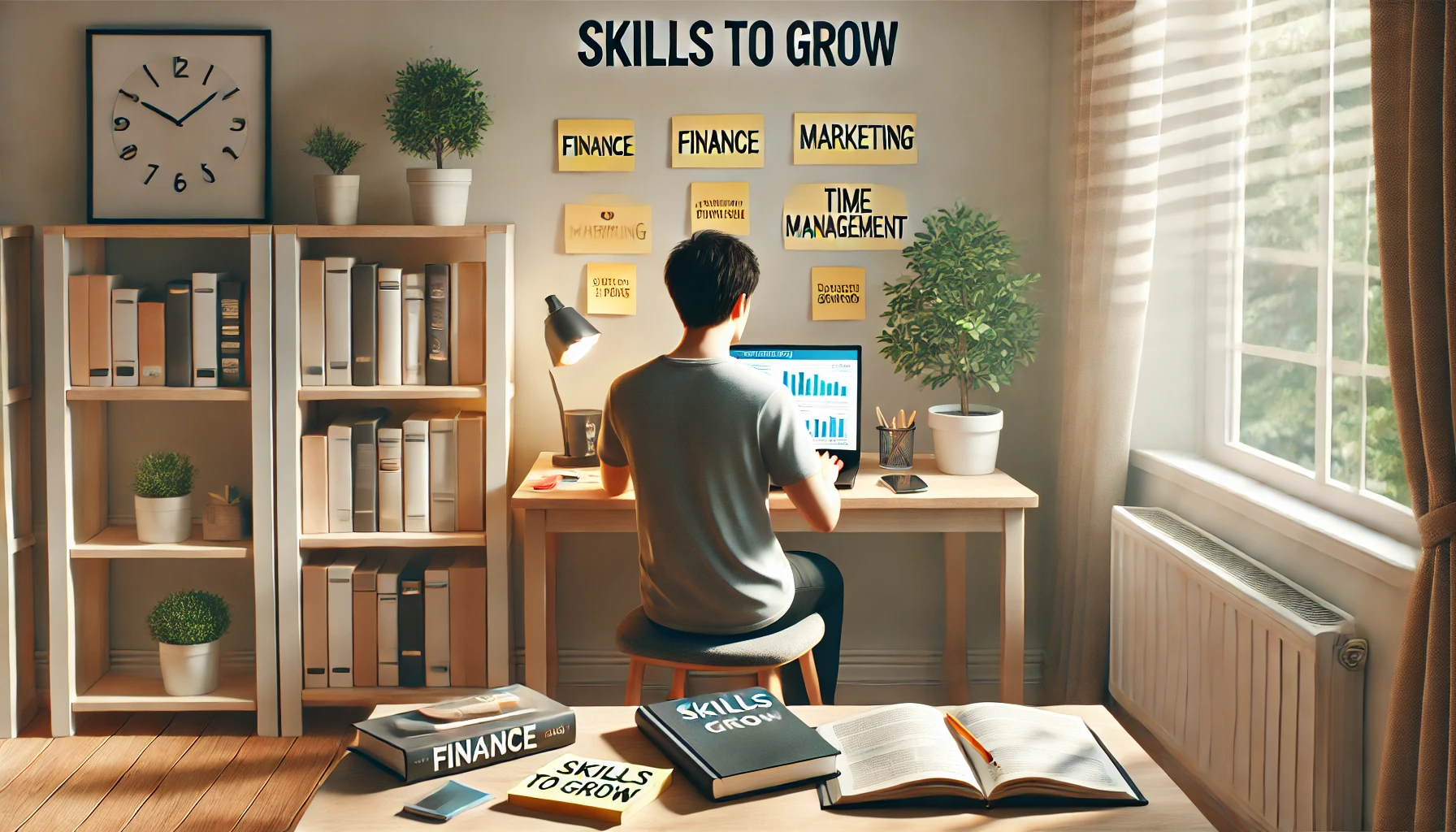Starting your own business is more than just selling a product or offering a service — it’s about building something from the ground up. And while passion is the fuel, it’s skills that steer the direction.
As a first-time entrepreneur, you don’t need to be an expert in everything. But there are key skills that can make your journey easier, faster, and more rewarding.
Let’s dive into the essential skills that every beginner should focus on developing.
1. Clear and Confident Communication
Whether you’re pitching an idea, sending an email, or posting on Instagram, communication is everything.
Why it matters:
- Builds trust with clients and partners
- Helps you explain your value clearly
- Prevents misunderstandings and saves time
How to improve it:
- Practice speaking about your business in one sentence
- Read and write every day
- Record yourself to gain clarity and confidence
- Use simple, direct language (clarity > fancy words)
2. Time Management
As your own boss, your time is your most valuable resource.
What to master:
- Planning your week in advance
- Prioritizing high-impact tasks
- Avoiding multitasking and constant distractions
- Using tools like Google Calendar, Trello, or Notion
Tip: Set daily goals and block your time for deep focus.
3. Basic Financial Literacy
You don’t need to be an accountant, but you do need to understand:
- Income vs. expenses
- Profit margins
- Cash flow
- Pricing and budgeting
Why it matters:
Without knowing your numbers, you can’t make smart decisions or plan for growth.
Start with:
- Google Sheets to track sales and costs
- Watching videos about small business finances
- Setting aside money monthly for taxes and reinvestment
4. Adaptability and Problem-Solving
Things rarely go exactly as planned in business.
Skills to build:
- Staying calm under pressure
- Looking for solutions instead of focusing on problems
- Pivoting when something doesn’t work
- Testing and learning from failure
Mindset: See every problem as a learning opportunity.
5. Self-Motivation and Discipline
When there’s no boss watching you, you have to lead yourself.
To build discipline:
- Create routines that support your work
- Start with the hardest or most important task of the day
- Track your progress to stay motivated
- Avoid waiting for “inspiration” — take action anyway
Motivation comes and goes. Discipline creates consistency.
6. Sales and Persuasion
Even if you don’t see yourself as a “salesperson,” you’re always selling:
- Your product
- Your service
- Your idea
- Yourself
Learn how to:
- Listen more than you talk
- Focus on the customer’s problem, not just your solution
- Ask the right questions
- Handle objections with empathy, not pressure
Selling is helping — if you believe in what you offer, share it with confidence.
7. Marketing and Visibility
You can have the best product in the world, but if no one knows about it… it won’t sell.
What to focus on:
- Understanding your audience and where they hang out
- Creating valuable content (tips, stories, behind-the-scenes)
- Building a personal brand on platforms like Instagram or LinkedIn
- Engaging instead of just broadcasting
Start with one platform and grow from there.
8. Basic Tech Skills
In today’s world, even offline businesses benefit from knowing a bit of tech.
Useful skills include:
- Creating simple designs on Canva
- Setting up a website or landing page
- Using WhatsApp Business effectively
- Scheduling posts with tools like Meta Planner or Buffer
- Navigating Google tools (Docs, Sheets, Forms)
You don’t need to be a tech wizard — just comfortable enough to solve small problems and use tools efficiently.
9. Emotional Intelligence
Your emotional awareness affects how you make decisions, handle pressure, and deal with others.
Strong emotional intelligence helps you:
- Stay calm when things go wrong
- Handle feedback or criticism professionally
- Read client emotions and respond appropriately
- Stay grounded during ups and downs
Entrepreneurship is a rollercoaster — emotional control is your seatbelt.
10. Willingness to Learn
The most successful entrepreneurs are lifelong learners.
To develop this mindset:
- Read books, blogs, and listen to podcasts regularly
- Take short online courses
- Ask questions — lots of them
- Surround yourself with people who challenge and inspire you
There’s always something to learn — especially when you’re starting out.
